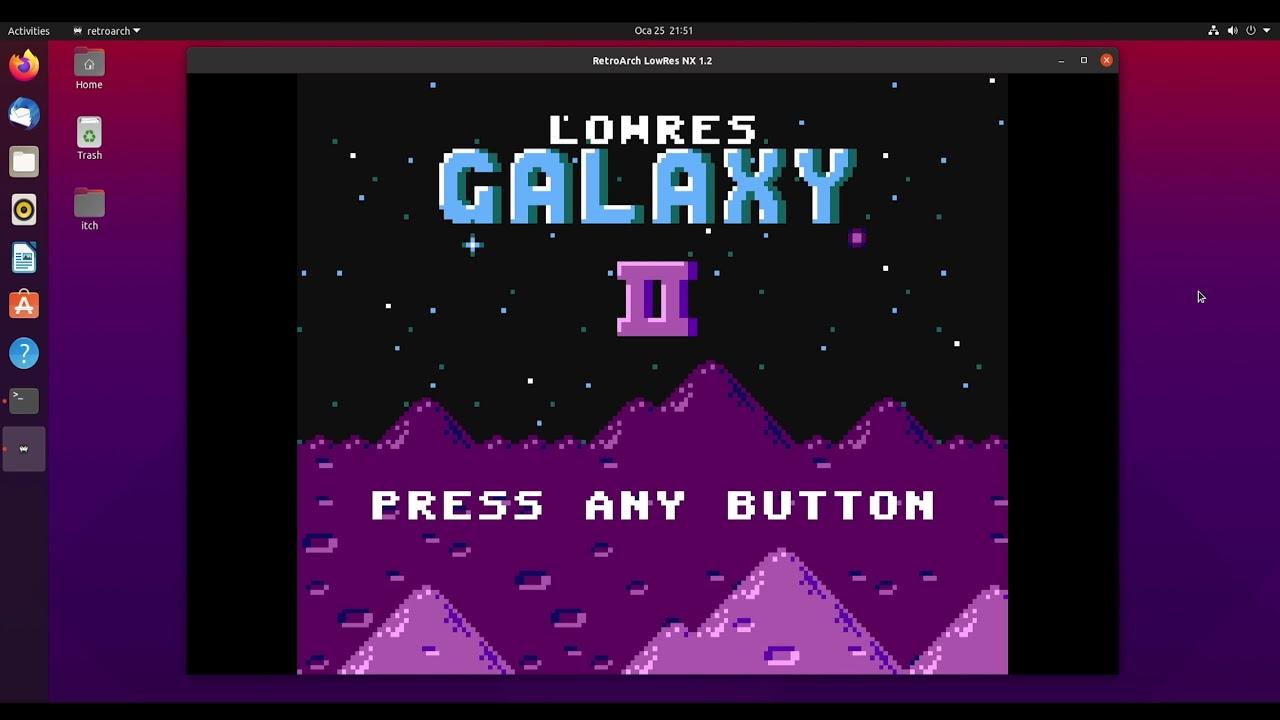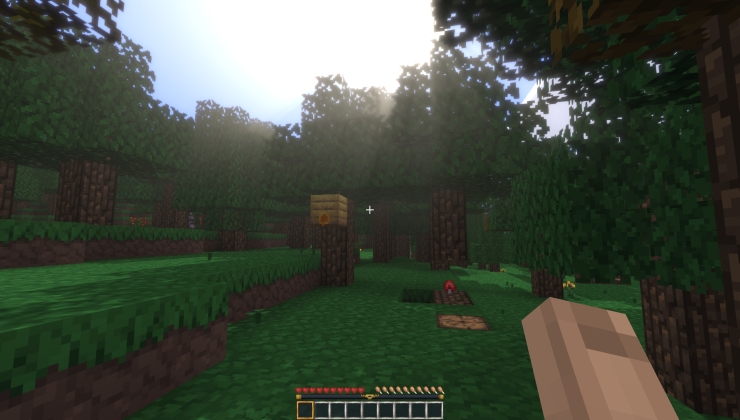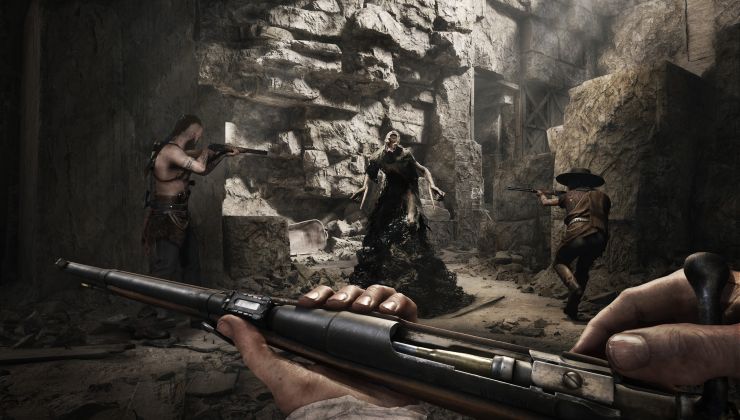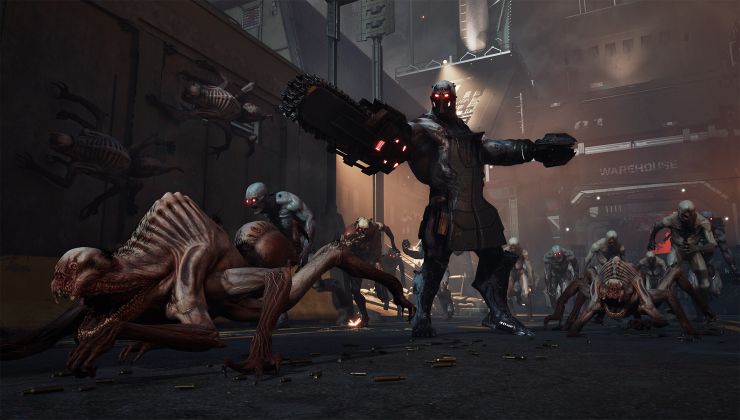The team behind the RetroArch application have announced the Open Hardware project, their attempt to make things easy for you and they also recently added a new fantasy console core to play with.
First up, what's this fantasy console thingy then? Well, it's called LowRes NX. In the spirit of others like PICO-8, it's a retro console with its own programming language based on BASIC. While it has standalone versions available already, which you can use to make games with, integration into RetroArch makes it easier than ever to play creations.
Imagine LowRes NX as a handheld game console with a d-pad, two action buttons and a little rubber keyboard below a slidable touchscreen. LowRes NX was inspired by real 8- and 16-bit systems and simulates chips for graphics, sound and I/O, which actually work like classic hardware. It supports hardware sprites as well as hardware parallax scrolling, and even offers vertical blank and raster interrupts to create authentic retro effects.

Direct Link
Sounds like a lot of fun, I'm a big fan of PICO-8 so I'll be giving it a go soon.
The other big news is the Open Hardware project, created from the frustrations felt by the RetroArch team on the "general state of the retrogaming scene when it comes to being able to dump and play your own legally bought game cartridges". With their first prototype being a proof of concept device to plug in Nintendo 64 cartridges, then attach the device to your PC with a USB Type-C cable and they want to have complete and seamless integration with RetroArch.
Hopefully, if all goes well, you'll be able to plug it into a PC be it either Windows / Linux or macOS and playing the game should be "as easy as just loading the ROM from this device". It's not a new project either, with development going on for at least a year now and their prototypes have seen "high success rates with our own cartridge collection".
When we mentioned before that we want RetroArch to be its own game console, we pretty much meant it. And being able to take your own game copies with you and run them with RetroArch seems like an obvious next step to take.
It's a pretty big goal to work towards but a very interesting one. Hardware dies, companies move on from older consoles and stop making them and there's still such a wealth of amazing gaming experiences possible with older games thanks to emulators that this seems like quite a logical step really. Hopefully they won't come up against many legal hurdles in doing this though - we know how much of a minefield it can end up being.
edit: the retro core might be a good target for the soon-to-start retro jam on itch. https://itch.io/jam/retro-jam-2021
Last edited by pageround on 22 Feb 2021 at 5:12 pm UTC
Last edited by Julius on 22 Feb 2021 at 6:07 pm UTC
The hardware looks excellent! Thanks for bringing this to my attention, Liam, I had no idea. Going to go see if I can build one :DAgreed! I already have something similar targeted towards the GameBoy, the [GB Console](https://github.com/pixelcircuits/GBConsole), that I put together last March. I don't have any N64 cartridges (never had the system), but they're cheap and plentiful at flea markets around here.
Last edited by Chuckaluphagus on 22 Feb 2021 at 7:02 pm UTC
As for the fantasy console: why not build something on the awesome [Love2D lua framework](https://love2d.org/)? Some custom BASIC based thing seems really uninteresting to me at least.I saw the [Lutro](https://docs.libretro.com/library/lutro/) core a while back, which tries to follow the Love2D API. It sounds like it is still experimental though.
Oh well, that runs on inefficient hardware!
Can't fully get it, since we already have a dozen of good emulators for real hardware and people actual still code for them.
C64,Amiga,Speccy scene are quite active those days.
http://www.indieretronews.com/
Last edited by kokoko3k on 23 Feb 2021 at 2:00 pm UTC
The "SDK" for LowRes NX is available on AUR while the core is not yet. You can use lowres-nx to load and play .nx files. I wonder why they decided to use BASIC-like style with bunch of GOTOs instead of something that Dijkstra would have approved.
i guess some of those old games were made in basic, so this move will make old developers confortable and new ones more familiarized on how things used to be
A lot of the commercial games from the early boom in home computers were programmed in BASIC. The most notable that come to mind are Ultima 1 and 2. I'm willing to bet that a BASIC-like language would especially appeal to the generation that was exposed to BASIC as children, and now want to tinker with their children.The "SDK" for LowRes NX is available on AUR while the core is not yet. You can use lowres-nx to load and play .nx files. I wonder why they decided to use BASIC-like style with bunch of GOTOs instead of something that Dijkstra would have approved.
i guess some of those old games were made in basic, so this move will make old developers confortable and new ones more familiarized on how things used to be
A lot of the commercial games from the early boom in home computers were programmed in BASIC. The most notable that come to mind are Ultima 1 and 2. I'm willing to bet that a BASIC-like language would especially appeal to the generation that was exposed to BASIC as children, and now want to tinker with their children.The "SDK" for LowRes NX is available on AUR while the core is not yet. You can use lowres-nx to load and play .nx files. I wonder why they decided to use BASIC-like style with bunch of GOTOs instead of something that Dijkstra would have approved.
i guess some of those old games were made in basic, so this move will make old developers confortable and new ones more familiarized on how things used to be
i was refering to console games, i know it was used on pc, but i didnt thought much about it, since were talking about an console...
i'm not sure if the consoles were strong enough to run games made with it
Last edited by elmapul on 26 Feb 2021 at 11:58 pm UTC
Sorry, my misunderstanding then - I've always been more of a computer gamer.A lot of the commercial games from the early boom in home computers were programmed in BASIC. The most notable that come to mind are Ultima 1 and 2. I'm willing to bet that a BASIC-like language would especially appeal to the generation that was exposed to BASIC as children, and now want to tinker with their children.The "SDK" for LowRes NX is available on AUR while the core is not yet. You can use lowres-nx to load and play .nx files. I wonder why they decided to use BASIC-like style with bunch of GOTOs instead of something that Dijkstra would have approved.
i guess some of those old games were made in basic, so this move will make old developers confortable and new ones more familiarized on how things used to be
i was refering to console games, i know it was used on pc, but i didnt thought much about it, since were talking about an console...
i'm not sure if the consoles were strong enough to run games made with it
I don't think any of the video game consoles from the '70s and '80s had games programmed in BASIC, they would have been ludicrously slow.
Anyway, someone must show LowRes NX to John Romero. Maybe he would get interested.












 How to set, change and reset your SteamOS / Steam Deck desktop sudo password
How to set, change and reset your SteamOS / Steam Deck desktop sudo password How to set up Decky Loader on Steam Deck / SteamOS for easy plugins
How to set up Decky Loader on Steam Deck / SteamOS for easy plugins
See more from me